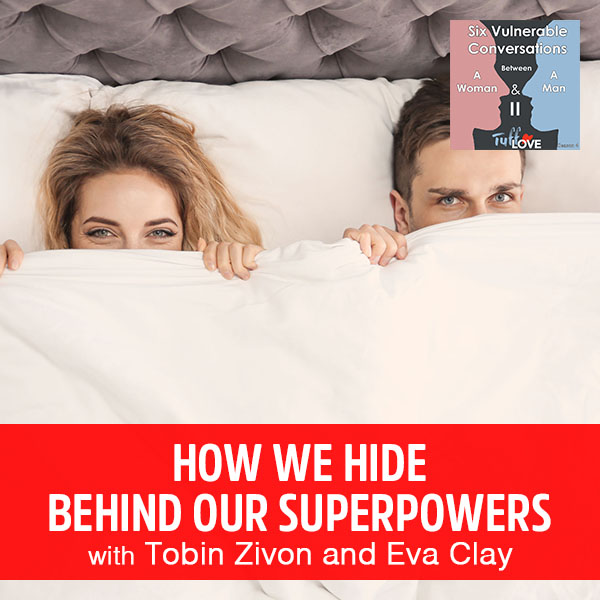
149: Six Conversations 4.1: How We Hide Behind Our Superpowers with Tobin Zivon and Eva Clay
Aug 3, 2018
Sometimes a whole pattern or strategy in life can be set into motion in one moment. Growing up a raging introvert, acclaimed sexologist Eva Clay was always nervous during family gatherings and would sit during the whole gathering with this book open pretending to read it. It gave her incredible comfort and set into motion a way that she hid which is behind intellect. Eva reveals that when she gets anxious or feels unsure or disconnected in any way, she often reverts to knowledge and what she knows. For spiritual teacher, therapist and tantra master Tobin Zivon, it’s this up and out thing where he blows up and out and he’s in a realm of either excitement or expounding articulation amazement. Tobin says where you’re usually good at something is where you hide. Your superpower is your shield. Learn how you can truly connect with yourself and being truly in your body to show up in life and run it optimally as Eva and Tobin take a closer look at how we hide from the world and the reasons behind it.
149: Six Conversations 4.1: How We Hide Behind Our Superpowers with Tobin Zivon and Eva Clay
I’m glad to announce that this is the first show of the Fourth Season of Six Vulnerable Conversations Between a Man and a Woman. The man on this show played by Tobin Zivon and the woman played by Eva Clay. They are both incredible educators out there in the world. They just go for it with this first episode on the concept of how we hide and the way each of them feels so nervous to be broadcasting this true, honest, and normal conversation and the power that arises from it. If you’re interested in the show, we have more seasons of Six Vulnerable Conversations. I also do a weekly show on Tuff Love. Let’s join Tobin and Eva.
—
Everybody, welcome. This is Eva Clay and Tobin Zivon. We’re having a vulnerable conversation. Our topic is how we hide.
I’ve been exploring this incredibly delicate yet sweet alive spot where everything starts to hum in a way that brings out the best of what’s possible in ourselves in any given relationship. Also, I’m discovering in the way that I experience the world, the people in the world, the work I’m doing, and the gift I’m giving as a teacher. All of that starts to hum with a lot more aliveness and realness when I find and invite myself and have the courage to lean through those forests fields of fear that keep me in old patterns of hiding. I love this topic and I’ve loved our explorations on it so far. I’m curious and I want to feel or our current living edges here.
Thanks, Tobin. I could kick back and let you talk for an hour and I would be so happy. I love to hear you speak, so beautiful and hypnotic. Interesting since we’re having a vulnerable conversation about hiding an impulse in me to hide behind you right now and just let you take this talk.
In every one of our talks so far, it’s so easy for us to go into teacher mode even with each other like, “I get to be the one asking the questions and letting you go tell the vulnerable spots. It’s so wonderful and easy and yet, not ultimately, maybe what helps us bloom in the biggest ways.” I hear you and thank you for the compliment. I love that that works for you. I’m noticing this interesting interplay or flickering magical dance between our biggest gifts and the ways we habitually hide. I know this in myself, I’m seeing it in what you’re saying, and I noticed it in all the people that I work with. Even my poetic expounding on and channeling of the divine energies that I’m seeing, feeling and articulating can be a place that I’m not as fully inhabiting my raw tender underbelly. My human heart, human pelvis and squirmy-edgy places as the man that I am in relationship to the life I’m living.
I see it as a gift and a place that I can transmit qualities of understanding, knowingness, and divinity itself sometimes. If I’m not careful, I can just slide right over into over articulating as a way to not stay in that fleshy, human intimate contact with myself and with the person or people or situation that I’m showing up in. I’ll reveal to the reader right now, this is our third time on this conversation. For some reason the universe keeps bringing us right back to this on, let’s get you right on that edge again. The other ones, the technical difficulties have gotten in the way of them being producible or shareable. Here we are living this again and it’s amazing that we’re like, “Get back there.”
We keep getting bounced back and each conversation is new. I do want to reference something from a previous conversation that probably the readers won’t get to hear. I want to rewind a little bit, Tobin, and I’m not letting you off the hook quite so quickly. You mentioned this thing about up and away, I’ll bet that you’re not the only one who has this strategy. I want to reflect to you how interesting it was for me now that we’ve been doing these more consistently. Of course, I knew you were there before and we had done things together, but I’m getting to know you more and more. I notice a shift in your voice. I can feel it through the inflection and the intonation of your voice when you leave your body. It’s such a poetic place but I do have a sense of like, “I’m losing you,” and you made a sound.
I was patting my belly.
I felt you through the wires and it’s coming back into your body. That sensation of the slapping or the sound is bringing you back and it felt a tether on it. I have my own way of hiding as a teacher. Sometimes a whole pattern or a strategy in life can be set into motion in one moment. For me, there was a moment when I was a little kid like nine or ten or early elementary school and I was going to an event with my extended family and my cousins. I didn’t have a close relationship with my extended family and we didn’t know each other well. I was nervous and I’ve always had a little bit of social anxiety. You might not know that about me, but I’m a raging introvert. I’m nervous. I was going to this family gathering and I didn’t know how to interact with my cousins. I didn’t know what to say or do. I didn’t know if I looked the right way if they would like me, so I brought a big fat book. I will never forget the name of it, it was called Century of the Detective. It’s about the history of detective work in the last 100 years. It was one of those books on my parent’s shelf that was just for decoration, like a book that nobody actually ever read.
I had just pulled it off their shelf when I thought, “I’ll take this book and this will give me something to do. It will make me look smart.” I sat during the whole gathering with this book open pretending to read it. It was way beyond me and it was super boring. I just stared at it pretending like I was reading it and it gave me incredible comfort. They’re setting into motion a way that I hide which is behind the intellect. I know when I get anxious or feel unsure or disconnected in any way, I often revert to knowledge and what I know. I like to know things. I study a lot. I’m an academic. Similar to you, that is a superpower of mine that also provides a very convenient shield.
I’m feeling this for all of us. It’s a blind spot that we could all look out for like, “Where are you really good at something?” Not that you should ever throw that away. I’m scanning around myself and what I do to hide. All the people that I’m close to and we could use this as an invitation, “What are you the best at and where might there be a blind spot where you’re using that thing at some extra amounts?” Maybe it’s even 10% if you were to dial it back. For me, it’s this up and out thing. I blew up and out and I’m in this realm of either excitement or expounding articulation amazement. Even when I’m in touch with divine qualities of bliss, God and true nature, there’s a way that I can almost get off on that by going up and out instead of grounding it down and staying with the felt-hum and embodied nowness of it.
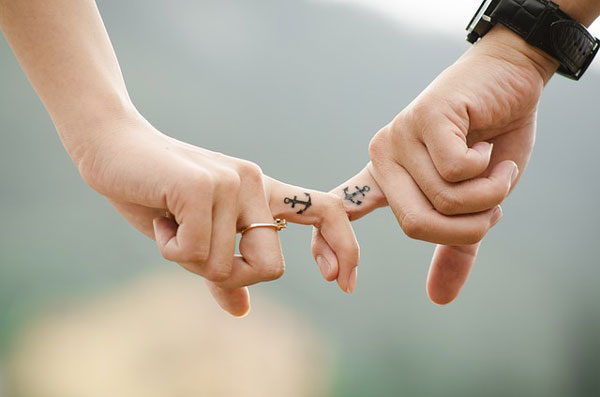
How We Hide: Where we’re intimate, fleshy, vulnerable, and where we’re willing to be touched and to be as authentic and innocent, it’s the hotspot.
I’m sensing like, “Where are those places for you or for me or for anyone reading that are superpowers?” The truly healthy beneficial things you have going on for yourself and for your life, but might be almost on autopilot taking over as a place to go and spin right off of what I call the hotspot of our existence which is where we’re intimate. Where we are fleshy, vulnerable and where we’re willing to be touched and to be as authentic and innocent in a way that for most of us as human beings, we’ve learned to somehow spin off of that. To me, it’s the hotspot but it’s also the sweet spot where everything gets much juicier, whole better and whatever flavors. You can even feel it in me. There’s a deepening or more of a bass note to how I show up. I still have a lot of room to move in that direction I feel, especially when it comes to how I am on a stage. When there’s teaching involved, I can quickly spin off into the up and out zone.
Let’s call this the gift and the shield. I’m going to do my best not to go into my shield. That makes complete sense from a neuroscientific perspective, but when you get reinforced for something, you being on a stage and expounding and being a channel of divinity and spirit in white light. You are so prolific and gifted in this way that you mesmerize people and they sit at your feet. Your brain is getting washed with dopamine, endorphins and oxytocin, all this good stuff for being in that space. When you need it, that’s the first place that the brain is going to go to.
As a counterpoint to that, when I’m down and in and I’m willing to fully be, then all of a sudden I bumped into something that I feel scared, vulnerable. I feel like, “People are going to judge me. They may not like me.” I’m more permeable to people’s reactivity. I’m more in touch with other people’s feelings. I can sense that more directly. As opposed to oxytocin, I’m probably getting something not as pleasurable as all that stuff we’re talking about. It’s more like I call it the Red Hot Coal. I’m burning. In some way, my tender underbelly is out there exposed. The nerve endings are right there going, “I’m going to reveal this thing that I could get hurt or judged or responded to in a way that, at least on my primal part of my brain, feels like I’m dying a horrible death.”
It being fake or whatever. I’ve started to learn that hovering, living and coming back staying and risking staying in that sweet spot is where not only in the moment do you get some dopamine hits, but your overall life starts to be bathed in something much richer, fulfilling, and through and through good, not just moments of good. It’s an overall field of integrity and connection. Bathing in things that feel like my relationships are more and more satisfying and trustworthy in a way that they never used to be. This is my reflection on what you were saying.
I think you nailed it. From the neuropsychology of it, it engenders a true connection and that’s when our bodies are thriving. That’s when we’re running optimally. The mistake that a lot of teachers make is not being more human, embodied, and available to their students. If you remained in your up and away state, people would fall at your feet and make you their guru. It’d be this idealization of you and you could do that. How one dimensional would that be? Your keyword there was integrity. You, being integral. You being in your body makes you a next level teacher.
Your best tool is your superpower. Click To TweetWhat I’m seeing so clearly in myself and in a lot of people these days is where those pockets of hiding are. We squirm off into this place that might feel good in the moment, but we’re hiding from a pocket of shame that’s been in us wanting love and wanting to be met with presence and realness. If we keep hiding those pockets of shame, they’re going to leak out in some way and form. In a way that it’s going to bite us and the people around us, if we’re not careful, in either in subtle or drastic ways as we can see in the world these days. Especially where gurus are being put, it gets crazy.
As we learn to be more human, more fully here with every aspect of our self, and willing to expose and burn with the discomfort of like, “I’m right here being real and this is me exposed.” There’s a built-in mechanism that almost dissolves those pockets of shame in such a way that we will be less and less able apt to act out in ways that were out of integrity. The little moments of integrity and willingness to feel things that are uncomfortable could engender a being who is trustworthy through and through because they have been willing to meet those pockets.
No matter how awake anyone is, no matter how enlightened or how hifalutin their experiences are, most of those people have those shadows. It’s the people who are willing to keep meeting, including, and showing them all the way along that become the more and more trustworthy teachers and human beings. This is almost like a pep talk for me to keep going in this direction because it is so good. It can be exquisitely challenging. I noticed after our last couple of talks, what I think you and I both have termed a vulnerability that we have.
I was straight up tripping for a whole night after reading it like, “Why did I say that?”
“I’m going to be judged.” It goes deep in us and that’s why we tend to squirm. It goes down to a place that feels like it will be excommunicated or exiled from the tribe and die a guilt-ridden horrible death. We’re rewiring some deep things and as we do it, we have to factor in like, “Even after I’ve done it, I’m going to feel some feelings for a little period like a hangover or I took some medicine and it’s working itself through the system.” That is up leveling the whole system but it might not feel very great for that bit of time. I had the same thing.
My version was someone did comment in this very intense way. They went out of their way to text me this Facebook direct message. It was insidious. It was perfect because if it had been more blatant and judgmental, I could have defended it. It was masterful like, “Do you want to hear my feedback on your videos?” and built up to this dislike. Either way, you do it as wrong and bad. They’ve got in there like, “Ouch.” I remember, “This is the perfect medicine for me. This is what I was afraid of. It’s why I’m not being more authentic and vulnerable in my sharing of myself as a teacher on the stage of me letting the fountain of what I have to share flow.”
That’s what I’m here to do. I feel like I have a deep, sincere love of doing that in the cleanest, purest, truest way possible, that’s all I can do. I got to get up there and let it flow in this way that is of service, integrity, and human, that’s my intention. I’ve been afraid to do the human part because I thought I would get judged like I did. The thing that I was trying to avoid and it’s like, “Here it is.” “This was what I was trying to avoid and keeping me from giving my gift fully. It wasn’t easy and yet it’s that fruitful doorway to where I feel now. I’m like, “I feel like another level of free. I feel like let’s do this thing.” I feel like I’ve been transmuted already by these conversations we’re having, Eva, that I feel more in the seat. More in what I would consider an authentic and healthy seat of not hiding and being real. I can tell, I have ways to go before I’d really be there in the way that rings as true and fully integral to who and what I am as possible. This step feels fundamental and great.
I’ll reflect you that you feel different. With each successive conversation, I’m feeling more courage, boldness and embodiment. Maybe it’s that we’re not doing this as a Facebook Live, which is terrifying to me every time. I appreciate you coming here with me, saying yes to this, and being willing, Tobin, because you are lighting away. I want to create a little bit of relativity for the people who might be reading and come back to this idea of your superpower being your shield. We could almost create a template for this work because of course on an evolutionary basis, your body and brain, your nervous system is going to reach for the best tool you have available to survive in any circumstance. Your best tool is your superpower. How do we know when we’ve hit that threshold and crossed the line between it being our gift and it being or shield?
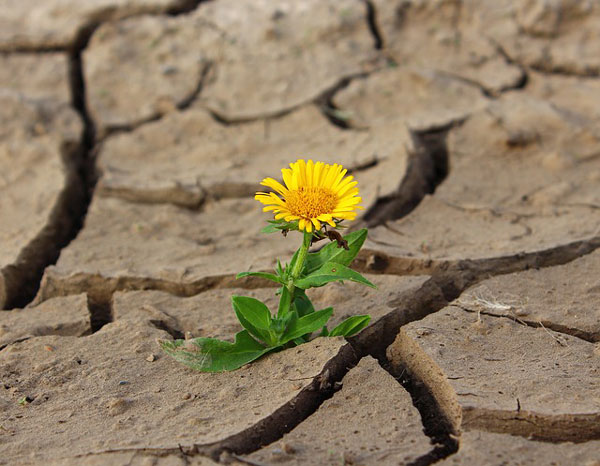
How We Hide: Your body and brain is going to reach for the best tool you have available to survive in any circumstance.
The first answer that comes is in order to even answer the question we need to pay attention. We need to be humble and willing to be awake and aware to the way we’re walking through life and interacting with people. Just be on the lookout, just curious. The next step is to some degree we have to be very committed to willing to feel our bodies. Our body is a Geiger counter and you can start to get a feel for whether your body is moving in the direction of hereness, even if it’s uncomfortable, “I’m here, I’m available, I’m in my flesh.” I call it, “Feeling our tender underbelly.” You get a feel for that versus in the mind, in some version of escape and you start to get a feel for it. “Am I in the hiding or am I in the sweet spot/hotspot of existence?” The way I am showing up. Often, what we’re going to have to do is counterbalance the automatic momentum of these old patterns because they’re on autopilot, they’re running the show to some degree and they go very quickly.
They’re wired into the nervous system.
It becomes like water running down a hill in a groove. The groove is there, the water runs that way.
The answer to that question about are you using the gift as a gift or as a shield? It lives in the body. Being aware of the body is the key. What I do know about the nervous system is when we reach for that gift as a shield, it will be driven by anxiety. You could call it fear and I prefer to call it anxiety. It’s a more specific way of describing a syndrome of somatic responses to an environment. When your safety or survival feels threatened, you’ll feel the tension in the body. You’ll feel a contraction and a very mild state of fight or flight freeze, and you’ll feel things like your heart rate is elevated and you feel sweaty, maybe your palms are sweaty or a little tremor somewhere in your body. It could be on such a subtle level.
I do this at parties because I’m socially anxious. I don’t like small talk. I don’t like to be with people I don’t know. I’ll reach for that intellect. I feel a closure in my throat, I feel a constriction in my chest, and it gets hard to swallow, sometimes I’ll reach for it. I wonder if you or any of the readers can relate to this when I simply want to push someone away. Sometimes I don’t feel, for whatever reason, reaching for an honest conversation with someone that I want to stop talking to. I’ll reach for the blunt edge of the instrument which is my intellect either because the conversation is not engaging me or entertaining or drawing me in any way or I want to make an escape. I can go into the intellect and dry out the conversation.
Part of resourcing or self-soothing can come from telling yourself the truth. Click To TweetLet’s stay with this because I think these are helpful as like, “This is what I do if I’m on autopilot.” The momentum is uncomfortable up there. Let’s look in your case, what would be the antidote or new pathway that you would be using your, like in Buddhism they talk about right effort. You’d be creating a new pathway for that water to flow. What would that look like and/or feel like?
The new pathway, if I weren’t hiding behind intellect, I would either have to gather the resources to be emotionally present or gather the resources, to be honest.
I think for you and the readers, the doorway to that place of authenticity and realness of having yourself and being more wholly and truly yourself, is the very thing you were talking about before which doesn’t feel good. If you go in the direction of this new pathway that would feel more resourced, honest, courageous, you would have to feel more directly that very thing that drove you up into the old hiding mechanism. We have to feel that stuff that’s yucky in the body that you were describing like tight throat, squirmy belly, tight pelvis, butterflies. Your whole body buzzing with electricity almost like you’re being shocked a little bit. It’s not comfortable. What I’ve seen and I think is true, if I’m tuning into what you’re describing, in order for you to move toward the new pathway, you have to tolerate a bit of that little buzz. Take a leap of faith in the direction of what would be more courageous whole, not going into the old deflection system. We do need a courage and a little bit of muscle to go right in and through what is scary for us or produces anxiety in us, to create the new pathway.
I want to add to that, what I think we need are tools to self-regulate. I think it’s science. How can we talk to the body? We need to convince the body that we’re not going to be exiled. What I’m talking about in or layman’s terms would be self-soothing. How do we comfort and support ourselves and look around for evidence of safety so that we can take these risks when we’re relating and not feel like we’re going to die like I have felt after our Facebook Live? I feel like I’m going to die of vulnerability.
It’s elegant. The whole design is that once you start moving in this direction, those layers of compacted, imprinted trauma in you start to unwind, but that unwinding takes self-sourcing or self-soothing. This all works together like awareness. It’s a superpower gone awry. Let me move in this other direction with the courage, resolve, willingness to feel things, and take steps. Let me also bring online compassion, self-soothing, presence, and love to myself. The simplest version of that can start with telling yourself the truth very strongly in your own mind.
I call it a go-to statement of what’s true and helpful as opposed to what your conditioning says, which is usually false and not helpful. The conditioning is, “If I do this and it goes wrong, I’m going to die.” Part of resourcing or self-soothing can come from telling yourself the truth, which is, “I’ll be fine. Ultimately, this will be better. It’s worth taking these risks. I’ve got this. I’ve got friends who love me no matter what.” Things like that can be the first step in that direction of soothing and staying the course of this courageous, less hiding path of life.
So much of that resourcing and self-soothing happens offline, when we’re not in the moment. It’s our practices, it’s our relationship to our breath, body, daily practice.
Everyday routines, things that we give ourselves, almost like nutrients we feed ourselves on a daily basis which is so vital.
How else do you hide?
It’s been the big one lately. Just going into some fantasy about the ideal version of myself and trying to be it as opposed to coming in and being authentic. I feel that doorway, that invitation, I squirm around it mostly in. The other way, which is losing its grip, is a self-shaming loop that my mind would get in. Right now, there’s part of me that wants to hide and not reveal that that’s something that happens in my brain. I program to judge myself harshly and hold high expectations for myself and get down on me if I’m not living up to those. There’s a whole weird hiding thing that goes on with that when I’m not counterbalancing it with these kinds of awareness, self-soothing, truth-telling, and all these practices.
That shame loop puts us into hiding? That makes sense.

How We Hide: So much of that resourcing and self-soothing happens when we’re offline, when we’re not in the moment.
It’s a hidden way of hiding. It doesn’t feel like you’re hiding but when you’re identified with, biting down on and staying caught in a loop of shame or self-judgment or aggression toward oneself or comparing oneself in a negative way, I see that as a form of hiding. Relative to the way that we can shine, show up and be ourselves and be human when we’re not caught in those loops.
Maybe a reader out there doesn’t know that the very definition of shame is to hide or cover, which is the Latin root word of shame is to cover. I think they are so common and relevant.
I want to say how struck I am by that saying about shame being rooted in the root word of hiding because shame is what we hide. Everything we’re talking about has its foundational roots in some versions of shame. When we come out of hiding skillfully or authentically that is based on compassionate and skillful loving ways of showing up, what we’re doing is unearthing those pockets of shame that had been hidden such that we can heal them. That’s where we shine as the beings we’re supposed to be. It’s like turning coal into diamonds. I’m having an epiphany right now just from your statement about shame having its root in Latin of hiding.
This is not a pop psychology perspective, but this is more of an evolutionary psychology perspective. Shame actually enables us to belong. It ensures our belonging by hiding and covering up any perceived deficiencies that we have that might be a threat to the order of tribe. All tribes are constructed on both diversity and sameness, so they have a certain level of sameness amongst tribal members in order to ensure belonging and a certain degree of diversity just so that there’s balance. Nature needs diversity to keep reproducing and keep a good gene. When we have some a striking feature that stands out in the tribe and that could potentially threaten the safety of the tribe. Let’s say that you’re born with a leg deficiency, you’re a very slow runner, and you’re living in the Savanah with your tribe, you are going to become an easy target for prey and you are going to attract attention to the tribe by having this lame leg. Nature installed the mechanism of shame neurologically and into our nervous system to cover those perceived deficiencies.
What I find interesting is what we call deficiency. That varies culture to culture, person to person, family to family, and how we define efficiency. That is what constitutes shame. How your culture defines what is normal and acceptable. Anyone working with shame, which is basically all of us, can be interesting to look at. How has your culture in your family defined what is normal to you? This isn’t a way that I hide, but since we’re making reveals, this is a big part of my story. I have always been ashamed of my butt. It’s very common for women. I’ve always had a very unique, there are pictures of me when I was two I had the same butt, a big old bubble butt. I don’t know why I got a black lady butt but I did and I’ve had to learn to love it. I love it. I haven’t always loved this. It’s really a source of a lot of shame for me. I was always covering it, tying shirts around my waist and backing up out of places.
Hiding is a new version for shaming ourselves. Click To TweetI get it because it’s a very similar thing about many parts of my body.
There was a time, I think it was the early ‘90s when I was a sociology major. I was studying culture at that time, cultural anthropology. The number one cosmetic surgery in the US at that time was breast augmentation and the number one cosmetic surgery in Brazil was breast reduction. I was also studying feminism. I was looking at cosmetic surgery around the world and comparing how our social norms are forming. How we surgically alter bodies. Now, the number one fastest growing cosmetic surgery procedure in the world is butt augmentation or enhancement. I know I’m making a deep confession right now. It was starting to turn around for me with my ass. Three or four years ago, women started coming up to me at parties and asking if my ass was real. I was like flabbergasted. I was like, “What are you talking about?” I didn’t even know there was such a procedure, the Brazilian butt thing. They were touching it and pinching. I’m like, “My ass was in fashion.” I spent 40 years hating it. Don’t be ashamed of any part of your body.
You can play these kinds of games like what if my nose all of a sudden was the hottest nose. All women were into lean and skinny dudes. That’s not outside the realm of possibilities. So much of this is conditioning and how you see things. If we grew up in a place where it’s not just about our body parts or how we see ourselves physically, but it goes deeper and deeper. All of these layers are how we were related to in our early years. I know people who are by societal and cultural standards are not attractive, but they grew up in a field where they reflected their beauty. They walk through the world as if they are the hottest person around.
Then the whole world shows up as a reflection of how they feel about themselves. If we engage in these pads of unhiding well, we start to metabolize those pockets of shame. Those ways that we hold shame in our consciousness in our being, minds, and toward ourselves. They can shift and disappear in a way such that we come back into our natural state to see and feel ourselves as a whole, as beautiful and as love-worthy. As courageous beings showing up as the individual that we are here to be, and that’s the gift we have to give. It’s not some other perfect version of what we think we should be, which is what we’re here to give. I think it’s the most human us that becomes the biggest gift.
Now, I refer to my ass as world-famous. I’ve come a long way to be able to say that. I love how this conversation has evolved from how we hide to why we hide?
How to start not hiding. I always emphasize this artful, delicate, and skillful process we have unhiding and rewiring. Even if somebody hears a talk like this or hears that hiding is “Bad and being authentic is good”, then we can even start to impose on ourselves that hiding is a new version of shaming ourselves for shaming ourselves. To me, there’s this artful invitation that we’re all being given as human beings to lovingly and masterfully move in these directions where we’re no longer hiding. We get to be fully ourselves and show that and be that, to walk through the world and sit in ourselves in every experience in a way that is like, “Here I am.” I’m impacted, Eva, by what I’m getting in this conversation by sitting here and feeling and inquiring sincerely how far my system has shifted even in a couple of months since we started doing this. It’s really powerful.
I feel you. I think this will be a perfect place to make a plug for Robert Kandell’s book, which is called unHIDDEN. I’m sure he has a lot to say on this topic and I would love to hear him chime in. This process of unhiding, how can we do that? Why would we do that? Why do we need to come out of hiding? We talked about the benefits for you specifically of not hiding as a teacher, of being embodied and integral as a teacher. We all stand to reap the rewards of more connection, more empathy or a sweeter and juicer life. Also, I want to underscore how necessary it is for all of us to be sharing our gifts fully whether those gifts mean being visible or less visible. I don’t mean being on Facebook or having a website, I mean how actively we’re putting our creative genius into the world. If we’re in hiding, I feel like we can’t do that fully, and therefore we’re denying the full expression of our gifts. It is likely to create a lot of pain, depression, stagnation, anxiety and secondary states of being.
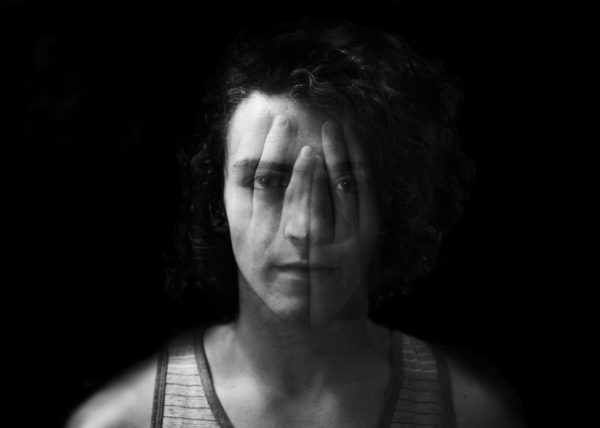
How We Hide: When we’re no longer hiding, we get to be fully ourselves.
I truly feel I’m purveying my own existence and everybody that comes into my mind right now. We’re seeing that we have these patterns, this momentum, these ways of being that you could call ways of hiding. If it’s habitual and taking over and keeping you a little askew from which is most fully you, showing up as you, revealing you and ultimately giving the gift of you, that’s less than what we want to experience in our lives. That’s less off of what I consider the true place that we’re being called forward. There will be suffering there and all sorts of collateral things that occur. Addictions or drama in our relationships or illnesses is part of the net result of all of the hiding. The benefits of working these edges, doing our best, lovingly and skillfully, coming out of hiding, and coming more and more into our full selves benefits our infinite and truly worth every millisecond of the challenge that we’ll face.
I want to say maybe this will be our final thought. I want to say, “Come out of hiding. Resource yourself and bolster yourself. Take notice of all the ways that you are safe, loved, and that you belong. Take a nice deep breath and then take a risk.”
If that’s proving to be difficult or you’re bumping into things that are tricky for you, in the next breath, call Eva. She is here and I’m here too if you need support, which I think most of us do. I could not recommend calling Eva more as a navigator, as a true masterful guide along the path of coming out of hiding in a way that is authentic, gorgeous, and glorious for your life going forward. That can be important too. We all bump up into some sticky places when it comes to blooming ourselves in this life. I want to say, from my heart, that this woman is a truly masterful guide and if you have any inclination, I would nudge you in the direction of reaching out to her.
Thank you, Tobin. If you’ve been reading and you feel taken with Tobin, like all people are, please reach out to him. He does incredible work as well. I know, Tobin, that you love to work with couples and you are so masterful in that area of navigating intimacy and every day relating. Also that recommendation goes both ways.
That is one of the biggest places where most people are doing their hiding when it comes to intimacy, relationship, and finding the skills, courage, and mastery to be real and be vulnerable. To show up, open their hearts, and find true healthy loving. That’s one of my specialties. I’m always on board for that.
We didn’t even get into that.
I was just feeling that what we’ve done set us up for the next number of these conversations. It’s going to form every conversation that we have from now on. I hope anyone reading feel invited to those next conversations where you and I will be much more here in our gushy human transparency and serving from that much more helpful place. That’s what I’m seeing. I’ve got a good feeling about what we’re going to do going forward.
This has been really fun. The third time’s the charm. Until our next Vulnerable Conversation. It’s been a beautiful talk. Thank you, Tobin.
Thank you, Eva. I’m loving you. Thank you, everybody, for being here.
Thank you so much, Eva and Tobin, for such an amazing show. The depth, the realness, it’s just a great start. I can’t wait to hear the next five. If you enjoyed the show, please visit RobertKandell.com, iTunes, Stitcher or your favorite podcast app. Leave us a review, subscribe and send us some loving. We love it. Thank you so much. Go forth. Be merry. Be free. I love you. Bye.
Resources mentioned:
- Tobin Zivon
- Eva Clay
- Century of the Detective
- unHIDDEN
- Tuff Love on iTunes
- Tuff Love on Stitcher
About Eva Clay

About Tobin Zivon
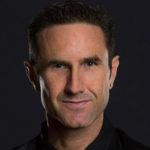 Tobin Zivon has been described as “The ultimate Guide… A rare, exquisite blend of spiritual teacher, therapist and Tantra master all wrapped into one.” His teachings are designed to not only help you access and experience your true essential/awakened nature in deeper and more fulfilling ways, but also to illuminate the nuances of what it means to actually LIVE and LOVE from this divinely infused center of your Being. He has been wholeheartedly dedicated to the path of embodied awakening for over 30 years. Tobin’s background includes five years working intimately with Adyashanti, 12 years in the Ridhwan School (under the direction of AH Almaas), 6 years in a Zen Center, a three- year apprenticeship with one of the foremost transpersonal psychotherapists in America, and training with the South African Tantra teacher Shakti Malan. He authored The Art of Mindful Living: “You Can’t Stop the Waves, But You Can Learn to Surf,” and has been teaching groups, couples, and individuals for 20 years. See www.tobinzivon.com
Tobin Zivon has been described as “The ultimate Guide… A rare, exquisite blend of spiritual teacher, therapist and Tantra master all wrapped into one.” His teachings are designed to not only help you access and experience your true essential/awakened nature in deeper and more fulfilling ways, but also to illuminate the nuances of what it means to actually LIVE and LOVE from this divinely infused center of your Being. He has been wholeheartedly dedicated to the path of embodied awakening for over 30 years. Tobin’s background includes five years working intimately with Adyashanti, 12 years in the Ridhwan School (under the direction of AH Almaas), 6 years in a Zen Center, a three- year apprenticeship with one of the foremost transpersonal psychotherapists in America, and training with the South African Tantra teacher Shakti Malan. He authored The Art of Mindful Living: “You Can’t Stop the Waves, But You Can Learn to Surf,” and has been teaching groups, couples, and individuals for 20 years. See www.tobinzivon.com
Podcast: Play in new window | Download



